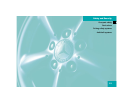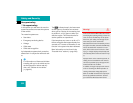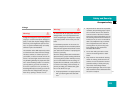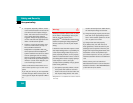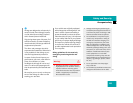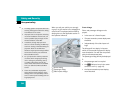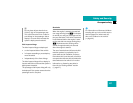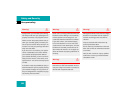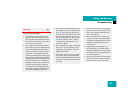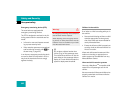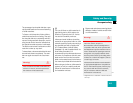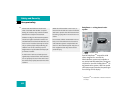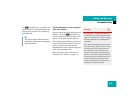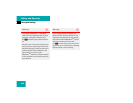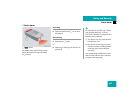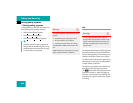
59
Safety and Security
Occupant safety
Warning! G
USE SEAT BELTS PROPERLY
ț Seat belts can only work when used
properly. Never wear seat belts in any
other way than as described in this sec-
tion, as that could result in serious inju-
ries in case of an accident.
ț Each occupant should wear their seat
belt at all times, because seat belts help
reduce the likelihood of and potential
severity of injuries in accidents, includ-
ing rollovers. The integrated restraint
system includes SRS (driver airbag, pas-
senger airbag, side impact airbags, ETD
(seat belt emergency tensioning device),
and driver knee bolster. The system is
designed to enhance the protection of-
fered to properly belted occupants in
certain frontal (front airbags) and side
(side impact airbags) impacts which ex-
ceed preset deployment thresholds.
ț Never wear the shoulder belt under your
arm, against your neck or off your shoul-
der. In a crash, your body would move
too far forward. That would increase the
chance of head and neck injuries. The
belt would also apply too much force to
the ribs or abdomen, which could se-
verely injure internal organs such as
your liver or spleen.
ț Never wear belts over rigid or breakable
objects in or on your clothing, such as
eyeglasses, pens, keys, etc., as these
might cause injuries.
ț Position the lap belt as low as possible
on your hips and not across the abdo-
men. If the belt is positioned across your
abdomen, it could cause serious injuries
in a crash.
ț Never use a seat belt for more than one
person at a time. Do not fasten a seat
belt around a person and another per-
son or other objects.
ț Belts should not be worn twisted. In a
crash, you wouldn’t have the full width
of the belt to manage impact forces. The
twisted belt against your body could
cause injuries.
ț Pregnant women should also use a
lap-shoulder belt. The lap belt portion
should be positioned as low as possible
on the hips to avoid any possible pres-
sure on the abdomen.
ț Never place your feet on the instrument
panel or on the seat. Always keep both
feet on the floor in front of the seat.



